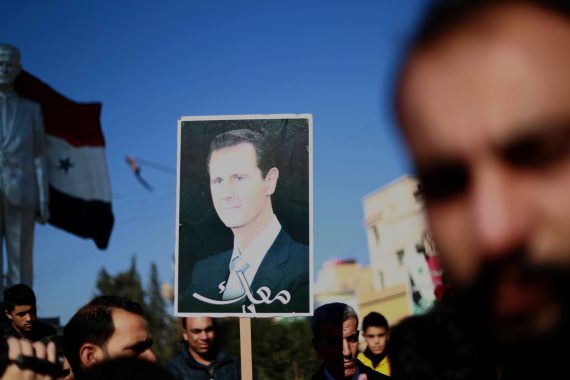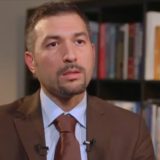After nine months of political deadlock, the Lebanese were finally able to come together and form a unity government on January 31 amid the worsening economic situation in the country. Lebanon has been falling back in every single aspect in politics, economic, tourism, infra-structure…etc. since the assassination of its former Prime Minister Rafik al-Hariri in 2005.
Such long delays in the formation of the government are becoming familiar in Lebanon especially in the last decade or so. It took the Lebanese more than two years to agree on electing Michel Aoun as a president in 2016. The Parliament extended his term by itself a couple of times since 2009, and there have been chronic problems and difficulties in the formation of the successive governments. Yet, some officials bragged lately about their ability to run the country without a budget!
The Lebanese always have their own version(s) of the events in the region. They tend to interpret the regional developments via the local lens. Last December, I paid a visit to Lebanon where I had the chance to talk to some of my colleagues and friends (think-tankers, journalists, activists, and academicians) about their perspective regarding the latest developments in Syria, and how these developments would affect Lebanon as well as their evaluation of different roles played by several foreign players inside Syria including the U.S., Russia, Iran and Turkey.
Many of them fear the return of the Assad regime to the regional and international arena, and thus its old influence on the Lebanese politics, economy, security and society. It is true that this influence has never left Lebanon in the first place, but it significantly decreased during the Syrian revolution. The expected come back of the Syrian regime might be overloaded this time with overwhelming lust for revenge.
Lebanon fears the return of the Assad regime to the regional and international arena, and thus its old influence on Lebanese politics, economy, security, and society.
In June 2018, Lebanese President Michel Aoun, a Christian allay of the pro-Iran Shiite Hezbollah, signed a naturalization decree granting citizenship to many prominent Syrians of the inner circle of Assad. The decree disturbed many Lebanese and was seen as an indicator for the resurrection of the Syrian regime’s influence inside the Lebanese politics. Almost six months later, in December 2018, Assad regime designated more than 600 local and foreign individuals on its terror list, including Turkey’s President Erdogan, former Turkish PM Ahmet Davutoglu and many Lebanese politicians such as the Lebanon’s Prime Minister Saad al –Hariri, Walid Joumblatt, Samir Geagea and others.
The U.S.’ decision to withdraw from Syria already left implications inside Lebanon. Many Lebanese noticed that their new government was on the verge of being formed at then. However, Trump’s decision to withdraw the U.S. troops from Northern Syria empowered the pro-Iran and Assad camp in Lebanon, lead by Hezbollah, who interpreted this step as a victory for this camp. Therefore, adding more conditions to allow the formation of the government.
Trump’s decision to withdraw U.S. troops from Northern Syria empowered the pro-Iran and Assad camp in Lebanon, lead by Hezbollah, who interpreted this step as a victory for this camp. Therefore, adding more conditions to allow the formation of the government.
There are those who interpret Hezbollah’s bigger involvement and role in the government as a possible preparation for a war with Israel. Such assumption doesn’t come out of the blue. Before the Syrian revolution, Lebanon was always used as a mailbox for exchanging messages between Iran and Assad regime from one side, and Israel from the other. In 2006, Lebanon paid heavy price for forcibly playing such role through Hezbollah.
As a result, Israel destroyed hundreds of homes and wiped out entire villages in Southern Lebanon. Around 1000 Lebanese died, 4500 got injured, and almost a quarter of Lebanon’s population got displaced. Lebanon, the state, lost billions of dollars, besides UNSCR 1701 and the heavy losses the Lebanese side suffered at then eventually prevented Hezbollah from launching new attacks on behalf of Iran across the borders.
Recommended
While Iran and Hezbollah have been deepening their presence and influence in Syria in the last few years, Damascus assumed the role of the mailbox from Lebanon. However, as the war is winding down there, many Lebanese fear that Lebanon might return as a playground for Iran and Assad. One indication is the increasing rhetoric engagement of Hezbollah with Israel and tunnels build up on the borders.
While Iran and Hezbollah have been deepening their presence and influence in Syria in the last few years, Damascus assumed the role of the mailbox from Lebanon. However, as the war is winding down there, many Lebanese fear that Lebanon might return as a playground for Iran and Assad.
During the Syrian revolution, Hezbollah’s rhetoric focused solely on attacking “Sunnis” -with the pretext of fighting what the party calls them (Takfiris)- to rally Shiite behind him in his involvement in Syria. Nowadays, Hezbollah is shifting back the focus to Israel as a tool to regain its lost legitimacy in the Arab and Islamic world. Such behavior may involve miscalculations and might quickly escalate into war.
One interesting point though is that some Lebanese tend to think that Russia’s role in Lebanon is growing lately and that if stayed on the same course, it may enable Moscow -in the future- to assume Syria’s old role inside Lebanon. This idea has supporters and opponents. Sunnis – anti-Assad- might live with it if this would spare them the need to directly address Assad in Syria, however pro-Iran Shiite such as Hezbollah are not comfortable with it especially if it comes on the expense of the Iran-Assad influence in Lebanon.
There are those in Lebanon who think that Iran’s influence in Syria is retreating thanks to Russia’s new ascending role in the region. According to this point of view, Iran and its proxies are no longer in a position to challenge Russia in Syria mainly because Moscow is working to restore a pro-Russian regime. In fact, those who agree with this narrative think that Moscow managed to re-structure some branches of the intelligence, security, and military apparatus in Syria in a way that serves its interests and secure a pro-Russia regime rather than a pro-Iran one.
There are those in Lebanon who think that Iran’s influence in Syria is retreating thanks to Russia’s new ascending role in the region. According to this point of view, Iran and its proxies are no longer in a position to challenge Russia in Syria mainly because Moscow is working to restore a pro-Russian regime.
Yet, not everyone in anti-Assad’s camp in Lebanon agrees on this narrative. There are those who see things from a difference perspective, and according to them, Iran is still very influential inside Syria. The pro-Iran militias which have mushroomed in the last few years in Syria always have the option to join the regime’s institutions or stay outside, in both cases, Iran will retain its influence on them. Unlike the Russian influence, the Iranian one is ideological and sectarian. This kind of influence is hard to break and last much longer than the one based on merely material interests.
When it comes to Turkey’s role in Syria, many Lebanese hope that Turkey can continue its opposition for Assad, but not so many of them are optimistic about this issue. Most of them believe that the Turkish military presence in Syria is there to stay. The ultimate goal of Ankara however is not very clear to them. Some of them think that Turkey will eventually sub-ordinate some areas inside Syria like Idlib to the Turkish territories; others think that Ankara’s effort in Northern Syria will go in vain as it will eventually have to give these areas back to Assad regime.
Regarding the latest rapprochement steps of several Arab countries with the Assad regime, some of them expressed their belief that this step is well coordinated with Russia. However, others think that foreign policies of Arab Gulf countries are chaotic and not necessarily coordinated with Moscow and ultimately will benefit Russia, Iran and Assad.





